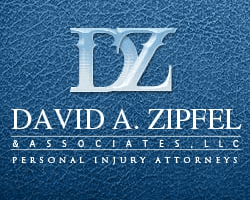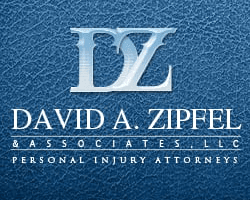
FAQ
Thousands of Cases Successfully Handled Since 1978.
-
-
Q: Find a Personal Injury Attorney in HartfordA: In order to ensure you obtain maximum compensation after an injury, you need a lawyer with extensive training and experience, one who fully understands every detail of personal injury-related laws. Should you retain my firm, I will personally handle your case and provide you with the high-quality representation you are looking for without the high expense. For an affordable contingency fee, you could have vigorous and determined legal assistance.
-
Q: Who is responsible in a premises liability case?A: The property owner can vary and this will need to be established. It may be a private residence, a company or a public area and these can all have different owners. Those that are in charge will be the ones responsible, but this does not mean that every case of a person falling will be at their hands. If they have failed to provide a reasonably safe environment and did not upkeep the area, then a case may be valid to take out.
-
Q: What is the difference between an injury case and workers' comp?A: For a worker that is injured while they are on the job, or the day in and day out wear and tear or their professional finally takes its toll, workers' compensation is a form of insurance in a sense that provides certain benefits. There are pros and cons to this form. It can offer more immediate results and is often times far easier to gain benefits in when compared to taking out a case. It is not 100 percent guaranteed however, and some workers may have benefits wrongfully denied to them. It also will pay a certain amount, which may not always be adequate. In some situations a case can be taken out in addition to workers' comp against a third party. A general personal injury claim may not be as easy to gain results in, but may also pay more if the case is successful.
-
Q: What can be done when a family member is killed in an accident?A: This is known as a wrongful death case, when the negligent actions of another person are serious enough that they lead to a fatality. In these cases there is no level of compensation that can bring back what was lost but there are steps that can be taken to help relieve some of the damage. The families of the victim may be able to take out a case. This can be to seek damages for the medical costs of their loved one prior to death, their funeral expenses or even lost income if the individual that was killed was the main provider in the family.
-
Q: I'm out of work after the accident. Can this be covered?A: There are a number of damages that can be covered in a personal injury case and this will be dependent on the particular circumstances. Lost wages can be included in this. It may be for a temporary period while recovery is made, or may be for an extended period when a person is no longer able to work. It will need to be established that it was in fact the results of the injury that have left a person unable to carry out the functions of their job.
-
Q: How do I know if I am eligible for compensation?A: Not every case of an accident means that there are automatically grounds for damages to be awarded. The circumstances of the situation should be reviewed by a professional that has experience handling these cases and can assess through a number of avenues the chance there is that compensation is necessary. The main thing that will need to be established is that the incident was the fault of another person and that it was their failure to act reasonably that led to the event occurring in the first place. If it can be shown that it was their error in some way, then there may be eligibility. This can be negligent behavior or even the failure to act, such as a medical worker that does not adequately care for their patient.
-
Q: How can a personal injury attorney help my case?A: After an accident, you may wonder how a personal injury lawyer can really help. Personal injury representation helps accomplish several things. First, it allows you to receive fair representation in court. If you've been offered a settlement that you believe is unfair, an injury attorney can help. After a claim, you may have to negotiate with insurance companies. A lawyer can help you make sure that you are treated properly by the insurance company and that you are offered a fair settlement. Additionally, attorneys have a vast understanding of the laws and regulations surrounding your case. It is important to have someone one your side that is familiar with the ins and outs of personal injury laws and court proceedings. Without this experience working for you, you may overlook an integral piece of information about your case or become overwhelmed by the complicated legal proceedings following your accident.
-
Q: Do I have to go to trial?A: Oftentimes a settlement can be made between you and your insurance without having to go to trial. This is the best and most desirable outcome. However, if your insurance company continues to refuse to provide adequate compensation, you may have to purse a higher payout in court. Either way, it is vital to have a personal injury lawyer on your side. Only they will have the knowledge and skill to build a strong case on your behalf.
-
Q: I was in a car accident and the other person doesn't have enough insurance to cover me. What can I do?A: Most states, including Texas, have what is called Underinsured Motorist Coverage. This applies to uninsured motorists, as well. If you were in a car accident caused by another motorist who has inadequate or no insurance, your insurance company is required by law to pay for any damages or injuries you may have sustained. Learn more by speaking with an attorney from my firm today.
-
Q: How much is my personal injury case worth?A: It is not possible to come up with an exact number. Determining the worth of a case takes a great deal of time, effort, and detailed record keeping. To come up with a general estimate, you and your attorney must review all receipts and documents for repairs, doctor's visits, medical bills, and the mileage to and from appointments. On top of this, the seriousness of your injuries-as well as how long they must be treated-can be taken into account, which is difficult to do. Consult with a qualified personal injury lawyer to discuss your case and determine its general worth.
-
Q: What is the first thing I should do after an accident?A: The first thing anyone should do after an accident is to get immediate medical attention. Without proper records regarding your injuries, it is nearly impossible to get full compensation. To ensure that you know exactly what records you need to keep, hire a personal injury attorney to counsel and guide you throughout the personal injury process.
-

